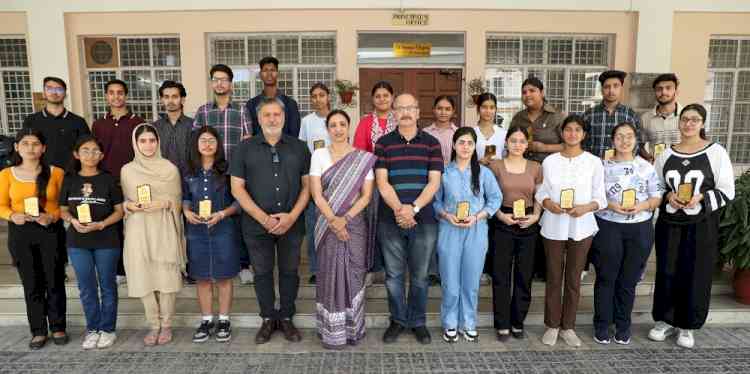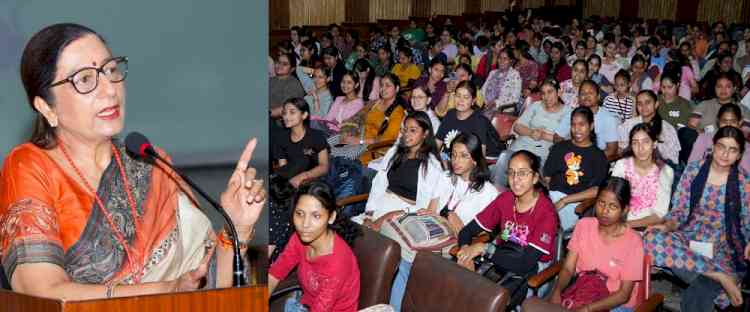CM Soren pitches in leading B- school to develop forest economy
Govt of Jharkhand collaborates with ISB to develop forest economy

Ranchi, December 31, 2021: Taking a significant step towards creating jobs and wealth through a model of sustainable development, the Government of Jharkhand collaborated with Indian School of Business for a unique initiative to empower the state’s forest economy. In an event to mark the second anniversary of Hemant Soren-led government today, the Department of Scheduled Tribe, Scheduled Caste, Minority and Backward Class Welfare along the Department of Forests, Jharkhand, signed an MoU with the Bharti Institute of Public Policy at Indian School of Business (ISB), Hyderabad, to develop scalable and sustainable solutions focussing on forest-based industrial value chains.
“Our approach is to build and formalise linkages between major stakeholders in existing value chains for forest-based industrial raw material while creating incentives for sustainable forest management. We will facilitate institutional and technological capacity building of communities. This vision will contribute towards meeting India’s global commitments for sustainable development,” said Prof Ashwini Chhatre, Executive Director, Bharti Institute of Public Policy, ISB, while formalising the collaboration with Naman Priyesh Lakra, Welfare Commissioner, Government of Jharkhand, in the presence of Governor Ramesh Bais and Chief Minister Hemant Soren in the state capital today morning.
In January 2020, the Chief Minister, less than a month old in office, had approached ISB to propose a cluster-based strategy for development of forest economy in the state. Based on research on the current scale and future potential of existing value chains, the team of researchers from ISB, led by Prof Chhatre, proposed an institutional design to facilitate sustainable forest management, value addition, and industrial procurement of seasonal forest products.
The ISB team plans to pilot this approach in Gumla district, before expanding to other districts with promising forest products. For this, the researchers have prepared an action plan, starting with creating incentives for local communities by establishing Community Forest Resource rights under the Forest Rights Act. The team is also working closely with Jharkhand State Livelihood Promotion Society (the nodal agency for the National Rural Livelihoods Mission in Jharkhand) for supporting this vision through women’s self-help groups (SHG).
“We will prepare a business plan based on market demand for select forest products in Gumla and assess the need for capital investments in infrastructure for collection, storage, processing, and transportation of forest products through women-centric forest-based enterprises. We will build the capacity of SHG leaders for product aggregation and pre-processing through technological enhancements,” explains Shreya Jain, Research Associate, ISB.
The lynchpin of the initiative is a partnership between local communities as the custodians of forest resources; industry leaders using the products of that forest, and government agencies facilitating and regulating the creation of jobs and wealth. This unique project also represents a triple-win opportunity by reducing environmental threats, creating jobs at the bottom of the pyramid, and establishing sustainable forest management systems.
“We seek to establish active collaborations with government agencies, academic institutions, private companies, and civil society organizations in Jharkhand to address the tremendous potential of forests to create jobs and wealth while also mitigating adverse environmental impacts,” added Prof Chhatre.


 cityairnews
cityairnews 









